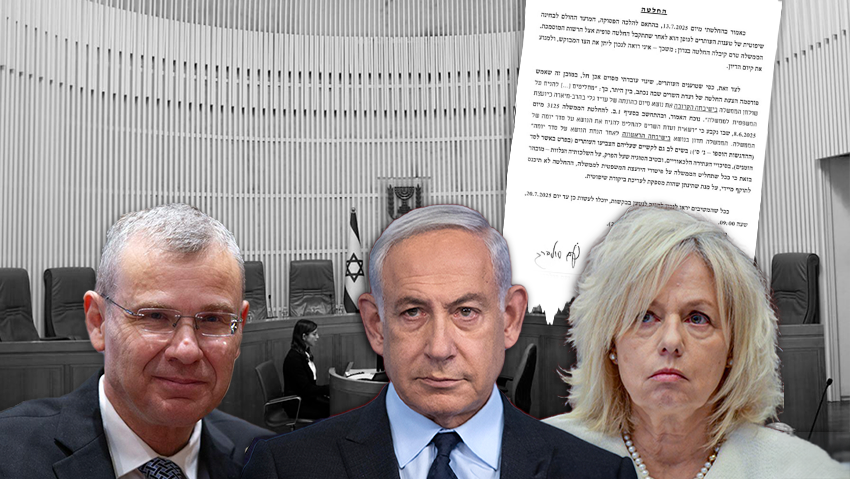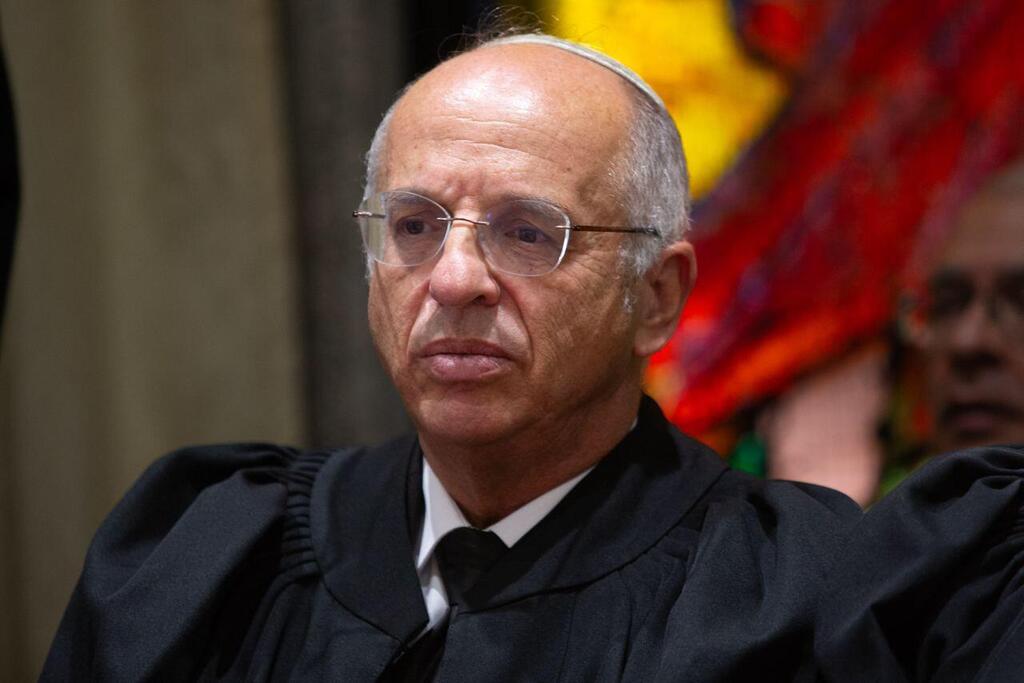While Sohlberg rejected petitions for an injunction to block the process entirely, his decision effectively means the government may proceed with its vote, but any resulting dismissal will be temporarily frozen pending court oversight.
2 View gallery


Justice Minister Yariv Levin, Prime Minister Benjamin Netanyahu, Attorney General Gali Baharav-Miara
(Photo: Alex Kolomoisky, Sraya Diamant/Haaretz pool, Shaul Golan, Rafi Kotz)
The ruling follows a recommendation issued Thursday night by a ministerial committee that the government formally remove Baharav-Miara. The vote is expected to take place at the Cabinet’s next session in approximately ten days, not at the upcoming meeting this Sunday.
Committee members cited “fundamental and prolonged disagreements between the government and the attorney general, which have created a situation that prevents effective cooperation.”
The Movement for Quality Government, one of the petitioners, welcomed the decision, saying it “recognizes the gravity of the situation and the need to prevent irreversible harm to the legal advisory institution and the rule of law.”
The Israeli Democracy Guard, another petitioner, asserted the ruling suggests that “even in the court’s view, the attempt to oust the attorney general is unlawful.”
They added: “The ministerial committee rejects Attorney Baharav-Miara’s claim that the hearing was not held with an open heart and willing spirit, given that the government had already resolved it no longer has confidence in her. Lack of confidence does not equate to dismissal, and this decision was meant to create an additional interim stage beyond what is required by law, intended as a warning signal that the current confrontational and obstructive model of legal counsel is unsustainable.
“It is the nature of any hearing that it is based on a negative premise about the person summoned; otherwise, no hearing would be necessary. This premise does not imply that those conducting the hearing are closed to persuasion. Committee members sincerely sought to hear Attorney Baharav-Miara’s position with openness and good faith, and they regret her choice not to present her views before them.”
Protesters demonstrate against the proposed dismissal of Attorney General Gali Baharav-Miara outside the Justice Ministry in Jerusalem earlier this week
(Video: Gil Yochanan)
Baharav-Miara did not appear on Thursday for the second hearing convened by the ministerial committee on her potential dismissal. She maintains that the proceedings are fundamentally flawed and also boycotted the first hearing held Monday at the Prime Minister’s Office in Jerusalem. Calling the process “illegal,” Baharav-Miara accused the government of pursuing a move “intended to allow future dismissals of any legal adviser based on improper motives.”
Her absence from Monday’s session prompted the committee to summon her for an additional hearing, reportedly in an effort to create a legal trap ahead of a likely High Court petition if the committee and government ultimately approve her removal.
During Monday’s hearing, committee members sharply criticized Baharav-Miara one after another. She, in turn, described the hearing as a “sham” with a predetermined outcome. According to her, the dismissal plan was already in motion, led by ministers who had publicly called for her removal. She argued the entire procedure was rooted in an “unlawful” government resolution that undermines a 30-year precedent: convening a selection committee headed by retired Supreme Court Justice Asher Grunis.
Senior legal sources claimed the creation of the current hearing committee was illegitimate from the outset. After the government failed to form a legally authorized body, it deliberately established what they described as a politically motivated and legally powerless committee of ministers.
“This hearing enables the government to dismiss the attorney general, or anyone who follows, based on improper considerations, such as retaliation for launching an investigation or indictment against a coalition member,” Baharav-Miara said Monday. “It is a hearing with a foregone conclusion that constitutes a grave blow to the rule of law and to Israeli democracy.”




